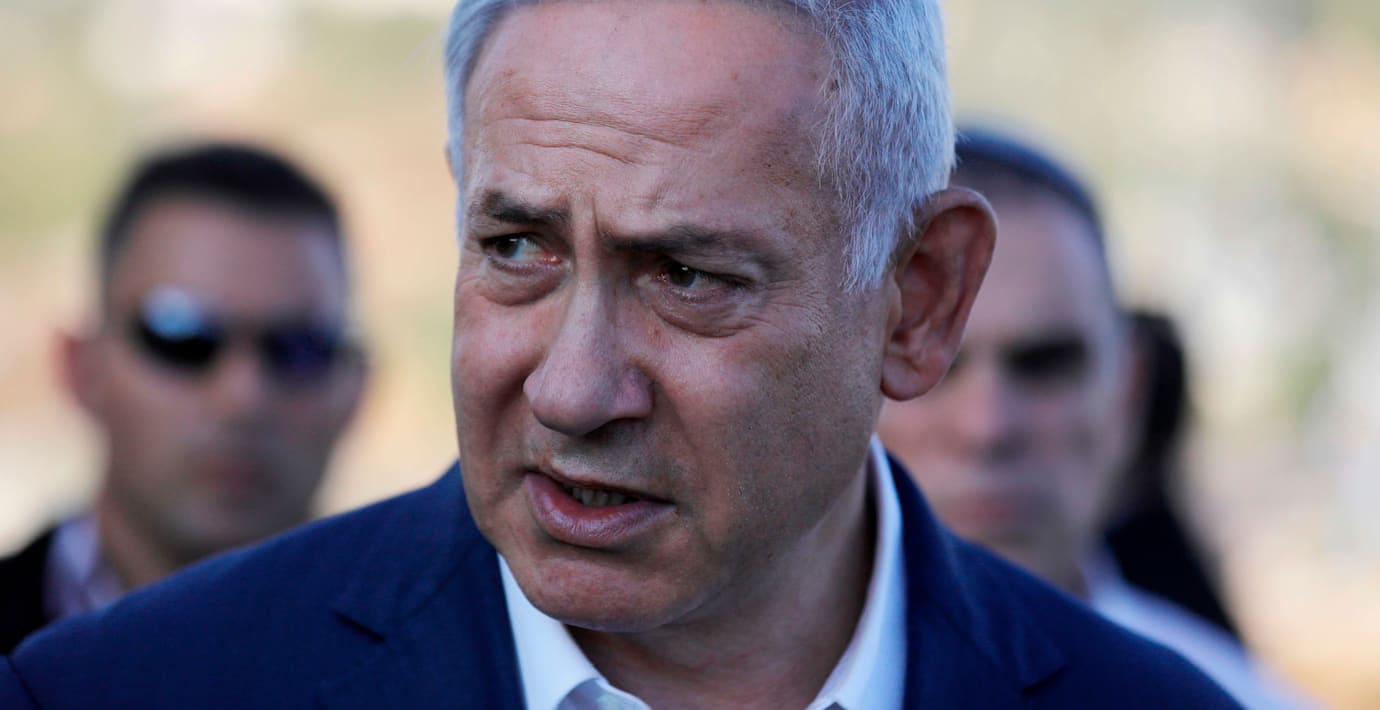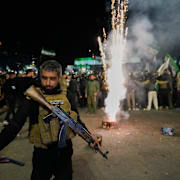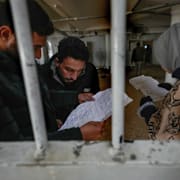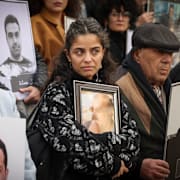
Netanyahu: ”Iran har ingen immunitet någonstans”
Israel hävdar att man avvärjt en storskalig attack genom luftangreppen mot iranska styrkor och shiitisk milis nära Damaskus i Syrien i går, rapporterar CNN.
Enligt Israels militär IDF planerades flera attacker med vad man kallar ”kamikazedrönare” av ett slag som tidigare inte har använts av iranska styrkor mot Israel.
”Iran har ingen immunitet någonstans. Våra styrkor opererar inom alla områden mot den iranska aggressionen”, skriver Israels premiärminister Benjamin Netanyahu på Twitter.
bakgrund
Konflikten mellan Iran och Israel
Wikipedia (en)
The Iran–Israel proxy conflict, or Iran–Israel proxy war and Iran–Israel Cold War, is the ongoing proxy war between Iran and Israel. The conflict is bound in the political struggle of Iranian leadership against Israel and its declared aim to dissolve the Jewish state, with the counter aim of Israel to prevent nuclear weapons being acquired by the Iranian government and downgrading its allies and proxies such as the Lebanese Hezbollah party. Iranian forces are operating in Syria in support of Bashar al-Assad's government. The conflict gradually emerged from the declared hostility of post-revolutionary Islamic Republic of Iran towards Israel since 1979, into covert Iranian support of Hezbollah during the South Lebanon conflict (1985–2000) and essentially developed into a proxy regional conflict from 2005. With increasing Iranian involvement in Syria from 2011, the conflict had shifted from proxy warfare into direct confrontation by early 2018.Israel suspects Tehran is pursuing the goal of forming a continuous land transport route from Iran via Iraq and Syria to Lebanon, and if Tehran succeeds "it would be a strategic game-changer." According to Mossad chief Yossi Cohen, "As long as the current regime exists, with the nuclear agreement or without it, Iran will continue to serve as the main threat to Israel's security". In the Syrian Civil War, hoping to bolster its logistics and force projection capabilities in the area, Tehran aims to clear a path from the Iranian capital to Damascus and the Mediterranean coast. Israeli government is convinced that Iran is interested in creating territorial contiguity from Iran to the Mediterranean and in transferring military forces – including naval vessels, fighter planes and thousands of troops – to permanent bases in Syria and is trying to "Lebanonize" Syria and take over using Shi'ite militias, as it had done with Hezbollah in Lebanon. As Israeli Defence Minister Avigdor Lieberman has warned, "everything possible will be done to prevent the existence of a Shi'ite corridor from Tehran to Damascus". In 2017, Israeli intelligence discovered an Iranian base being built in Syria just 50 km from the Israeli border.Israel and Syria have observed a truce since Israel reaffirmed its control over most of the Golan Heights in the 1973 Yom Kippur War, but the Syrian Civil War, which began in 2011, has led to several incidents of fire exchange across the once-peaceful borders. The Israeli military is reportedly preparing itself for potential threats should there be a power vacuum in Syria. "After Assad and after establishing or strengthening their foothold in Syria they are going to move and deflect their effort and attack Israel," an Israeli official told The Associated Press in January 2014. Some experts say that while the encroaching militant forces on Israel's border will heighten security measures, the advancements are not likely to create significant changes to Israel's policy disengagement in the Syria crisis.In a number of incidents over the course of the Syrian Civil War, Israel has clashed with Hezbollah and Iranian forces in the region. On several occasions, Israel was suspected of perpetrating or supporting attacks on Hezbollah and Iranian targets within Syrian territories or Lebanon. The first incident of this kind took place on 30 January 2013, when Israeli aircraft were accused of allegedly striking a Syrian convoy transporting Iranian weapons to Hezbollah. More incidents were attributed to IAF on May 2013, December 2014, April 2015. Some of those reports were confirmed by the Syrian Arab Republic, whereas others denied. Israel systematically refused to comment on alleged targeting of Hezbollah and Ba'athist Syrian targets in Syrian territory. In 2015, suspected Hezbollah militants launched an attack on Israeli forces in Shebaa farms. In March 2017, Syria launched anti-aircraft missiles towards Israeli-controlled part of the Golan Heights, allegedly targeting Israeli IAF aircraft, which Syria claimed were on their way to attack targets in Palmyra (Syria). After the incident, the State of Israel has stated it was targeting weapons shipments headed toward anti-Israeli forces, specifically Hezbollah, located in Lebanon. Israel denied Syria's claim that one jet fighter was shot down and another damaged. Israel has not reported any pilots or aircraft missing in Syria, or anywhere else in the Middle East following the incident. According to some sources, the incident was the first time Israeli officials clearly confirmed an Israeli strike on a Hezbollah convoy during the Syrian Civil War. As of September 2017, this was the only time such confirmation was issued.
Iran claims its foreign policy is based on aiding the oppressed vulnerables around the world–not for material gains, but as a humanitarian religious positive action. In Iran's foreign policy Israel is conceptualized as an illegitimate Zionist regime that threatens vulnerable people and Islamic religion itself. It is known as ideological enemy for Iran. Iran, in contact with the U.S. over the fight against Islamic State in Iraq and Syria has said that Israel would be at risk if the U.S. and its coalition sought to topple Assad. Hezbollah's 7 October 2014 attack on Israeli forces, its first declared such operation since 2006, proved the seriousness of the threat. Though the Islamic Republic of Iran has been known for its anti-Israeli stance from the very beginning, its continuous support for Hezbollah evolved into almost a direct confrontation with Israel, as Iranian Islamic Revolutionary Guard Corps have allegedly infiltrated Lebanon and directly supported Hezbollah during the past decade. The Hamas-dominated Gaza had also been considered a proxy of Iran.
Omni är politiskt obundna och oberoende. Vi strävar efter att ge fler perspektiv på nyheterna. Har du frågor eller synpunkter kring vår rapportering? Kontakta redaktionen



